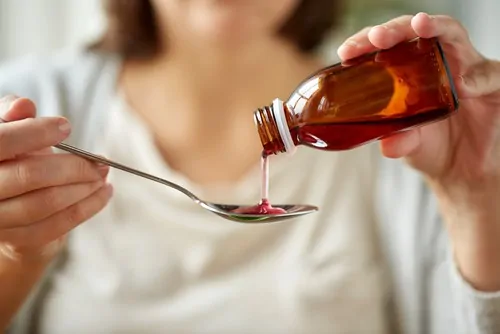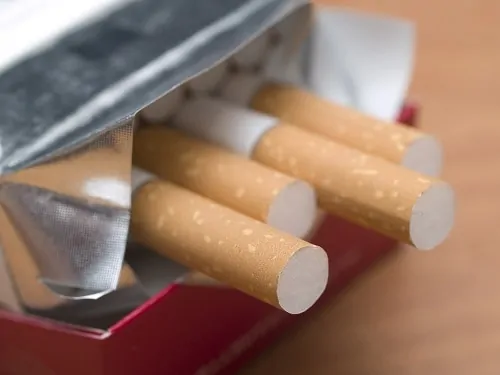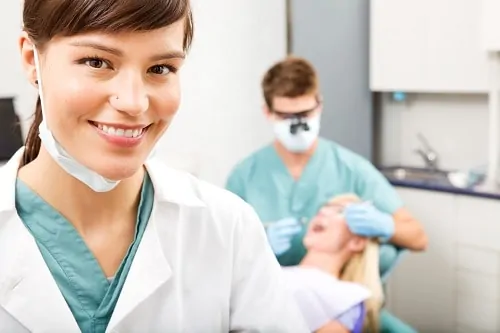Blog
Bad Breath & The Keto Diet

One of the most popular weight-loss diets today is the Keto Diet. Many people find it to be effective and watch the pounds drop off. But what does this have to do with dentistry, and why is your dentist in Douglasville talking about a weight loss diet? The truth is, what we eat affects our oral health, and the Keto Diet is no exception. In fact, many Keto Dieters notice a change in their breath after following the program. Let’s take a deeper look at why this happens.
The Science Behind The Keto Diet
Before we can understand why some people on the Keto Diet get bad breath, we need to understand how the Keto Diet works. The Keto Diet encourages increased consumption of high-fat foods and the decrease of carbohydrates. When carbs break down during digestion they produce glucose, which is the body’s preferred energy source. However, when there are no carbs to create glucose, the body burns fat instead, hence the weight loss. But when the body burns fat, it gives off three ketones called acetoacetate, beta-hydroxybutyrate, and acetone. The acetone is what causes bad breath.
Acetone
Acetone is a byproduct that occurs when our bodies burn fat. And it smells. But since the body can’t use acetone to store energy, our bodies get rid of it through urination or the lungs. When acetone is released through the lungs, its odor comes out as bad breath, also known as halitosis. But there’s good news — the longer someone is on the Keto Diet the more likely it is that they will become “keto-adapted,” which means your body adjusts to the diet and the bad breath goes away. In the meantime, you can fight off bad breath by practicing good oral hygiene such as brushing your teeth twice a day, flossing daily, and seeing your dentist in Douglasville every six months.
How the Keto Diet Can Help Your Teeth
Even though the Keto Diet commonly causes bad breath, there are actually some oral health benefits associated with it. Since carbs contain a lot of sugar, which everyone knows is bad for teeth, decreasing the number of carbs you eat also limits your teeth’s exposure to damaging sugars. When we eat foods with high sugar content, our mouth bacteria feed on the sugars. As a byproduct, these bacteria release acid. This acid is the main culprit to decay and cavities. In fact, some research shows that limiting the number of carbohydrates can lower the likelihood of cavities and even gum disease by more than 50%.
Talk to Your Doctor
Despite the fact that the Keto Diet can help people lose weight and may also protect teeth against cavities, the truth is, like all diets, it may not be beneficial for everyone. Before starting a diet, talk with your doctor and even consider talking with your dentist in Douglasville. After all, what we eat not only affects our overall health, it also affects our oral health. Advice and input from both your physician and your dentist can help you find the diet that’s best for you.
Why Does My Breath Stink?

- Dry Mouth.
Dry mouth is an annoying problem that many patients quickly dismiss. However, your dentist in Douglasville will be the first to tell you that a dry mouth can lead to a whole host of problems, including bad breath. In a normal, moist mouth, saliva works hard to help neutralize and rinse away acid and bacteria which helps protect your teeth against decay. But when there’s not enough saliva, the mouth can feel dry, bacteria and acid quickly build up, both of which can directly cause decay as well as give off an unpleasant odor.
- What You Can Do for Dry Mouth
Dry mouth can be caused by medications, or it could also be hereditary. Treatment would vary depending on the cause of your dry mouth, but the easiest way to help is to make sure to drink plenty of water every day. Keeping your mouth hydrated is an important step in keeping it healthy. If you suspect medications are causing dry mouth and bad breath, talk with your doctor about other potential solutions.
- Poor Oral Hygiene.
When we don’t practice a good oral hygiene routine of brushing and flossing every day, leftover food particles are left behind in our mouths and wedged in between teeth. These food particles fuel mouth bacteria and the combination of foodstuffs and bacteria can release a funky stench. Proper oral hygiene is important for everyone, but those who wear dentures may be at increased risk for bad breath if dentures aren’t cleaned regularly.
- How to Practice Good Oral Hygiene
The best way to protect your breath from the dangers of bacteria is to remove it by brushing and flossing. Make sure to brush your teeth twice a day for at least two minutes and floss at least once a day to remove food particles and bacteria that have built up throughout the day. Of course, seeing your dentist in Douglasville every six months will also help keep your teeth and breath fresh and clean.
- Gum Disease.
Perhaps the most concerning cause of bad breath is gum disease. Gum disease, also known as periodontal disease, causes deep gum pockets where food and bacteria can easily hide, making them very difficult to remove through regular brushing and flossing. The result is not just bad breath – untreated gum disease has also been linked to increased risk of stroke, heart disease, respiratory complications, and tooth loss.
- How to Combat Gum Disease:
The best way to prevent gum disease and the bad breath that goes with it is again to follow a proper oral hygiene routine and see your dentist regularly. If gum disease is untreated it will get to a point where you will not be able to reverse it.
Nobody should have to live with the embarrassment of bad breath, and it shouldn’t be taken lightly. See your dentist as soon as possible if you notice chronic, recurring bad breath.
The Oral Health Dangers of Cough Medicine

During this time of the year, it seems as if everyone we encounter is sneezing, sniffling, or coughing. While we do as much as we can to avoid getting a cold, sometimes we just get sick. When we do get a case of the coughs we just want it to go away, so we will try almost anything to make it stop. Most commonly, we’ll suck on cough drops and take cough syrup throughout the day. Even though these medications can alleviate our symptoms, your dentist in Douglasville wants you to know that the common ingredients in cough medicine do pose risks to oral health.
Concerning Ingredients
Many cough syrups and cough drops contain ingredients that can cause damage to teeth. More specifically, those medications containing sucrose, high fructose corn syrup, citric acid, and alcohol are the most concerning to your Douglasville dentist. The truth is, these ingredients can make us feel better during the course of a cold but can have long-term negative side effects on oral health.
Sugars
We’ve all heard Mary Poppins sing about how a spoonful of sugar will help the medicine go down, and she was right. Most cough syrups and cough drops contain sugar to help mask their naturally bad and bitter taste. But just like sugary snacks and foods, these sugars can be dangerous to teeth. When we introduce sugars into our mouths we can essentially create a feeding frenzy for bacteria. These bacteria will feed on sugar and then release an acidic byproduct. This acid will wear away tooth enamel and increases the risk of decay and cavities.
Alcohol
Besides sugar, some cold medicines contain small amounts of alcohol. Alcohol is known to cause dry mouth, even in smaller quantities. Normally, our mouths produce a lot of saliva — between 0.5 and 1.5 liters every day. This saliva helps neutralize dangerous acids and reduce the number of bacteria in the mouth. However, when alcohol causes dry mouth, saliva production slows and acids and bacteria stick around. This can increase the likelihood of decay.
Feel Better While Protecting Teeth
Even though cold medicine can increase the risk of tooth decay and cavities, you shouldn’t suffer through a cold by not taking it. However, your dentist in Douglasville my recommend:
- Taking a pill instead of liquid medication. Liquid medication can basically coat your mouth with sugar and alcohol, while pills greatly reduce how much contact your mouth has with those ingredients.
- Taking cold medication with food. When we eat we tend to produce more saliva which, as we know, will help wash away sugar and alcohol before they have a chance to cause damage.
- Brushing your teeth after you take medicine, especially before bed. Taking medicine then brushing your teeth will help reduce the amount of sugar and alcohol left in the mouth. This is particularly important before bed. Taking cough syrup before bed without brushing your teeth after means the ingredients are lingering in the mouth all night long.
While we truly hope our patients and neighbors stay healthy all year round if you do happen to get sick, try taking medicine using the tips above to protect your smile.
Why Do I Bite My Lips, Cheeks, and Tongue?

Biting your lips, cheeks, or tongue is a common habit for many people. While it may seem relatively harmless, biting the soft tissues in our mouths can lead to serious and painful problems. But like any habit, it can be difficult to stop biting your lips, cheeks, or tongue. Join your Douglasville dentist as we share a bit about why biting is bad and what you can do to break the habit.
Why We Bite
There are several possible explanations behind why we bite our lips, cheeks, or tongue. Occasionally, stress or nerves can be to blame. If you’re someone who chronically bites, this is most likely the case. But there are things you can try to help you stop. First, try to become more aware of when you bite. Maybe it’s during times of high stress or perhaps when you’re concentrating really hard. Once you know when you’re more likely to bite, you can start to work on consciously recognizing it and stopping it.
Other times, biting a lip, cheek, or tongue is purely accidental and can happen while we’re chewing or even during a sneeze. Even though these accidental bites can be painful and may even bleed, they’re usually not something to be concerned about and should heal on their own. However, there are some people who seem to bite their lip, cheek, or tongue accidentally a lot. If this is the case, it could be a sign of something a bit more serious such as a bad bite or TMJ disorder. Both of these dental concerns can mean that your top teeth don’t line up properly with your bottom teeth which makes it really easy for an accidental chomp to your cheek, lip, or tongue to occur. Your dentist in Douglasville will be able to help you determine if this is the case for you.
Why is Biting Bad?
First and foremost, biting the soft tissues of the mouth hurts, and the pain can last for a few days after the initial bite due to the sore that pops up as a result of the trauma. These sores that develop after a bite can become infected if they aren’t cleaned. Additionally, chronic biters can suffer from inflammation, swelling, pain, and redness. But that’s not all. If a bad bite or TMJ disorder is playing a role in your biting, you may also experience the common symptoms that accompany those problems including headaches and jaw pain.
How Do You Stop Biting?
Treatment of lip, cheek, or tongue biting depends on what’s causing it in the first place. If biting is a nervous habit, try to work with yourself to consciously stop it. More severe cases can benefit from behavioral therapy. If you suspect that your chronic accidental biting is because of a bad bite, schedule an appointment with your dentist in Douglasville. Your dental team is trained to help identify a bad bite and can suggest the most appropriate treatment for your specific case so you can stop biting once and for all.
Why Crooked Teeth Are Worrisome

Many people, both children, and adults alike, have crooked teeth. Occasionally, crooked teeth can contribute to poor self-esteem and loss of confidence. But even if crooked teeth don’t bother someone mentally, your dentist in Douglasville may still be worried. The truth is, crooked teeth can lead to some oral health (and overall health) complications, some of which can be serious.
Health Problems Caused by Crooked Teeth
- Gum Disease – Straight teeth are often healthier teeth because they’re easier to take care of. When teeth aren’t straight or overlap, they can be very difficult to clean thoroughly and properly. This can lead to a buildup of plaque and bacteria, which can cause a whole host of oral health problems such as cavities and gum disease. If not treated, gum disease can progress into periodontitis, which can lead to tooth loss and damaged bone.
- Jaw Pain & Chipped Teeth – Those with crooked teeth may also be at greater risk for damaging their teeth because crooked teeth often cause too much wear and tear on teeth. What’s more, is that this increased wear and tear can also put unnecessary stress on the jaw joint, which can lead to jaw pain or even TMJ/TMD.
- Sleep Apnea – Crooked teeth don’t only contribute to problems with oral health, but overall health, too. One of the lesser-known side effects of crooked or overlapping teeth is sleep apnea. Oftentimes patients with a small jaw also have overcrowded teeth, and this combination can make it hard to breathe. When the jaw is too narrow we tend to push our tongues into our teeth or rest the tongue in an unnatural place, which can put unnecessary pressure on teeth and cause them to shift. This lack of tongue space can also cause the tongue to fall back and cover the throat while sleeping, thus causing sleep apnea. Sleep apnea is a very serious condition that can cause people to stop breathing several times a night and increases the risk of high blood pressure, stroke, and heart attack.
The Problem with a Bad Bite
Many times, the solution to overcoming a crooked smile is some sort of orthodontic treatment. But there are times when a visually straight smile can also benefit from orthodontics. You see, if someone’s teeth appear straight, they can still have an underlying problem of a bad bite, also known as malocclusion. If not treated, a bad bite could be painful and contribute to long-term complications. Such as:
- Increased risk for chipped teeth
- Speech impairment in kids
- Severe headaches
- Damage to tooth enamel
Your dentist in Douglasville can help determine if you have a bad bite even if you have straight teeth and recommend the best treatment.
Causes of Crooked Teeth
There’s no one, concrete thing that causes crooked teeth. In fact, there are many causes of crooked teeth, some of which may be unavoidable. Crooked teeth can be caused by:
- Poor habits as a child such as thumb sucking
- Early tooth loss before an adult tooth is ready to erupt
- A small jaw
- Facial injury
- Genetics
- Mouth breathing
- Incorrect tongue posture
If you’re curious about whether your teeth could benefit from some form of orthodontia, we encourage you to call your Douglasville dentist to schedule a consultation to talk about your concerns and options.
21
Nov
How The Great American Smokeout Can Help You (& Your Kids) Stay Healthy

The Great American Smokeout is hosted on the third Thursday of every November. Its purpose is to help smokers set a day to work towards a smoke-free life. As you probably know, quitting smoking can help you get healthier, but it can also protect your children’s health, too. The truth is, those who live with smokers, including children, are at risk for similar health concerns as the actual smoker. To help celebrate the Great American Smokeout and raise awareness of the importance of quitting, our dental office in Douglasville is sharing some ways smoking can put others living with you at risk, even if they aren’t smokers themselves.
Secondhand Smoke Linked to Cavities
You may already be aware of the oral health complications that tend to affect smokers, such as bad breath and an increased risk of gum disease. But one thing you may not know is that secondhand smoke can also carry oral health risks. A study conducted by the American Dental Association (ADA) showed a potential link between secondhand smoke and the prevalence of cavities in children’s baby teeth. But that’s not all. There are several reasons smokers should avoid lighting up when children are around.
Children of Smokers are at Risk
An increased risk of developing more cavities is certainly something that worries your Douglasville dentist. However, children of smokers have even more risks that go beyond oral health alone. In fact, children of smokers tend to get more ear infections, more colds that last longer, and are at greater risk of bronchitis than children of non-smokers. The risks of secondhand smoke can even go beyond childhood if kids are continuously exposed to it. Constant exposure to secondhand smoke can lead to underdeveloped lungs and even heart disease and lung cancer. Unfortunately, the risks don’t end there. Children of smokers are nearly 4 times more likely to start smoking than those with non-smoking parents. Once someone starts the habit, it’s more likely that they themselves will become addicted and their risk of serious health problems, such as cancer and heart disease, will drastically increase.
Smoking During Pregnancy
Both smoking while pregnant and smoking around a pregnant woman carry risks to the unborn baby. Smoking or being exposed to secondhand smoke during pregnancy can cause serious concerns including:
- Low birth weight and perhaps an unhealthy baby
- Sudden infant death syndrome (SIDS)
- Premature birth
- Miscarriage
Even though our Douglasville dental office supports the Great American Smokeout, we aren’t here to lecture or judge anyone for smoking. Instead, we’re here to support our community in their journey to quit — which is exactly the mission behind the Great American Smokeout. Quitting smoking can not only help you live a longer, healthier life, it can also help protect your children.
If you’re trying to quit smoking, there are various resources you can use both online and in person. Try a few different things to find what’s best for you and always remember to never quit trying to quit.
Top Tips To Keep Your Family Healthy This Flu Season

It’s that time of the year again when the sounds of sneezes and sniffles, and coughs and congestion, are in the air. That’s right, it’s flu season, which can be a concerning time for all of us. At our dental office in Douglasville, we want you to know that you don’t have to suffer this year. There are some easy tips you can try to keep your family healthy all the way to spring.
Wash Those Hands
There’s a reason you’ll find posters in every bathroom stressing the importance of proper handwashing and why your dentist in Douglasville stresses washing those hands regularly — because it works! A little bit of soap and warm water can go a long way in keeping you healthy and flu-free. Make sure to wash your hands after using the restroom, touching another person, touching anything in public (think escalators and doorknobs!), and before every meal or snack. While soap and warm water work best to kill those pesky germs, alcohol-based hand sanitizer can work well in a pinch.
Clean Often
Having clean hands is one thing that can certainly help reduce the risk of catching the flu, but having a clean house is also important. Pay attention to the areas where your family spends the most time, like the bathrooms (don’t forget the toilet handles!) and kitchen. Sanitize things that are often overlooked, such as remote control, faucets, and toys. When in doubt, give it a quick wipe down with an antibacterial cleaner.
No Hands to the Face
Hands touch so many things throughout the day, and even if you’re washing them regularly, there’s still a chance germs are lingering around. In fact, the CDC states that one of the most common ways germs are spread is by touching a contaminated surface, then touching your eyes, nose, or mouth. These body parts have mucus that can easily transport germs into the body and make us sick.
Take Care of That Toothbrush
The truth is, toothbrushes can play host to all sorts of gross germs that can make you sick. But with proper care, those germs don’t stand a chance. Make sure the bristles are getting a thorough rinsing with warm water after every use to help flush bacteria down the drain (where they belong!). When it comes to storage, keep all toothbrushes in an upright position with the bristles at the top and allow them to air dry. Avoid using those little plastic toothbrush covers — they create the ultimate home for bacteria because it’s wet, cold, and dark. Keep family members’ toothbrushes separated from each other to avoid cross-contamination, and of course, never share toothbrushes.
Drink More Water
Water is the best thing for everyone to drink, but even more so during flu season. The truth is, a well-hydrated body is better equipped to fight off any infection. Try your best to have each member of your family drink at least eight, 8-ounce glasses of water a day. During flu season, if you can get them to drink a little bit more, it can only help.
Follow these tips this flu season to help keep your entire family healthy all winter long. However, sometimes pesky germs find their way inside and make us sick. If that happens, your Douglasville dentist encourages you to use sugar-free medicines to help alleviate symptoms.
Give Three Cheers for National Dental Hygiene Month

October is known for a lot of things, but it’s the one month set aside each year to give a little bit of extra love to all of the immensely talented, caring dental hygienists out there. There are so many of them across the country whose work goes unnoticed or even underappreciated each day. So we’re here to pull back the curtain and shed some light on the life-changing services they provide.
Take a few minutes with your dentist in Douglasville to give three cheers for dental hygienists and everything they do to keep you and your smile healthy.
Cheers #1 – Celebrate Their Love For Smiles
You have to admit it; someone who chooses dentistry as a career must really love teeth. If you ask any dental hygienist, we’re sure their answer will be very similar. Most dental hygienists take special classes and graduate with different training, degrees, and certifications. They don’t merely learn how to clean patients’ teeth and then send them on their way.
The American Dental Association will tell you that dental hygiene is no easy job. Hygienists are responsible for:
– Carefully examining teeth and the entire mouth for anything suspicious
– Taking a patient’s oral health history, blood pressure, and pulse
– Assessing your oral health needs and goals
– Taking precise x-rays and oral photos
– Educating patients about the best ways to care for their smile at home
– Clearing away harmful plaque and tartar from teeth to avoid decay
To get that up close and personal to smile each day takes a special dedication and a person who genuinely cares about their patients. Your Douglasville dentist will be the first to give any dental hygienist a huge high five for all the work they do!
Cheers #2 – They’re Making History
Fones School of Dental Hygiene first opened its doors in 1913, paving the way as the first school of its kind dedicated to educating dental hygienists. National Dental Hygiene Month first started being recognized in October back in 2009 courtesy of the American Dental Hygienists’ Association (ADHA) and Wrigley gum. Together, both organizations saw the need for more Americans to put a heavier emphasis on keeping their teeth healthy.
This year, there’s even more to celebrate as the ADHA is partnering with Walgreens and LISTERINE® to promote further the benefits of good oral health and the incredible, life-changing work done by dental hygienists across the nation. There’s even a new, #DoTheSwish campaign happening at participating stores where you can snap a selfie with specially-marked LISTERINE® mouthwash displays for a chance to win some sweet prizes!
Cheers #3 – It’s an Excuse for a New Toothbrush
While we genuinely appreciate all that dental hygienists do for patients, this is also a good time of year to take a look at your toothbrush. Is it starting to look a little scary? It might be time for a replacement if your bristles are frayed or breaking.
Having the right toothbrush is going to help keep your mouth and gums healthy, in turn, making your dental hygienist happy. That’s what we want this month and every month of every year! This holiday marks the perfect opportunity to celebrate the fantastic, fabulous work dental hygienists do to keep mouths healthy across the country, from big cities to small villages.
Are you need of a teeth cleaning? Contact our Douglasville dental office today by phone or online to schedule a time with your amazing dental hygienist. Don’t forget to thank them for all they do for you and your smile.
Everyone Can Do These Three Things to Relax at the Dentist

Your dentist in Douglasville knows how incredibly unnerving a trip to have your teeth checked or cleaned can be for some patients. If this sounds like you, it’s essential to know that you’re not alone. Besides the fact that millions of Americans struggle with anxiety about seeing the dentist, you’ve got an extended family at our office who cares about your comfort and happiness.
We thought it might be a good idea to devote a blog to different ways you or someone you care about can alleviate your dental anxiety and relax in the chair. There are a few things we tell our patients that are sure to work for you too.
#1 – Talk it Out
No matter what age you are or where you’re at in life, one of the most significant, most effective ways to overcome dental anxiety is to talk to us. Communication with your Douglasville dentist will help to lower your stress levels associated with dental visits and make you feel less anxious about scheduling an appointment with us. Your dentist treats patients every day who are not too excited about having to sit in the dental chair, even for as something as routine as a cleaning. We have the right tools and training to make sure you’re always feeling comfortable and at ease.
Remember, starting with the first phone call if you’re a new patient, share your questions and concerns with our dental team. We can adapt to fit your needs and your schedule, to make seeing the dentist an experience that’s stress-free (and dare we say, enjoyable).
#2 – Relax and Breathe
It may seem a little silly having your dentist remind you to breathe, but so many people tense up when they’re at the dentist. Sometimes when we do this or we’re feeling anxious, we hold our breath and don’t breathe properly. This decreases oxygen levels and can further increase your feeling of anxiety or panic.
Whether you’re on your way to the office for an appointment or if you’re getting ready to sit down for treatment, you can always practice deep, meditative breathing. It’s easy! Just try focusing on your breath. Keep taking steady, slow inhalations and exhalations. When you develop a more rhythmic breathing pattern, you’re able to focus on that more than your feelings of dread from having to see the dentist. Focusing on our breathing helps dramatically reduce stress levels.
#3 – See Your Dentist in Douglasville Regularly
It may seem a bit strange, but the best way to avoid the dentist is to see your dentist regularly. If you can overcome your anxiety and get through regular, routine checkups and cleanings, then there’s a good chance you’ll be able to avoid more extensive, time-consuming procedures in the future.
Also, remember this if you’re in the chair having work done: it’s OK to have a signal to stop and take a break if you’re uncomfortable. This puts you in control of the procedure and alerts your dentist if you need a time out for a minute or two.
We hope these tips can help provide you some relief from your dental worries and anxiety. Like we mentioned earlier, please don’t hesitate to call our Douglasville dental office and explain your feelings to us. There’s a solution for every patient, for every smile! We’re happy to help you find what makes you comfortable.
Watch Out! These Are the Top 5 Most Dangerous Sports for Smiles

From kids to adults, there’s no shame in getting your game on. It’s a great way to get your daily exercise and spend time with friends or family. (And a little competition never hurt.)
With any sport, we run the risk of spraining an ankle or breaking a wrist. But you also run an even bigger danger of damaging your teeth. No one wants that! Especially your dentist in Douglasville.
Oral injuries from sports can range from a simple bump on the lip to requiring major dental surgery to repair a smile. (Hello, hockey players!) Over the years, we’ve seen a lot of broken, chipped teeth due to sports. Here are some of the most common culprits when it comes to wreaking havoc on smiles.
#1 – Football
As the gridiron game starts to heat up this month, you should know that it’s not so hot for your smile. You can probably imagine that any sport requiring tackling is going to cause an injury or two somewhere along the way. Make sure you and your kiddos are equipped with a custom mouthguard. They offer added protection to your bite when you’re fighting hard on the field. You don’t want tackles taking out your teeth.
#2 – Basketball
This court can be harsh on teeth. Not everyone wears mouthguards to protect their smile when playing basketball, but there are so many opportunities for damage to your teeth. This is true, especially as we grow older and continue in the sport. Just picture it: an elbow flailing here and there or a ball headed straight for the kisser. Basketball has the potential to do some serious damage to your teeth.
#3 – Martial Arts
Sports such as martial arts, mixed martial arts, boxing, and others can also spell trouble for your teeth. There’s no denying that these sports are full-contact and sometimes literally mean hitting someone directly in the face. Oral injury is occasionally imminent. But it can be avoidable if you remember to wear a custom mouthguard courtesy of your Douglasville dentist.
#4 – Stick and Bat Games
Think of a sport that you need a bat or a stick to play; we’ll wait. (Hint: Hockey, baseball, lacrosse, cricket, etc.) There’s an increased risk of getting smacked in the face with a stick or bat when you’re on the field or the ice with these sports. Just like all of the other sports we’ve discussed so far, it’s important to protect your smile with a mouthguard, especially if you’ve had extensive cosmetic work.
#5 – Skateboarding
Sure, Tony Hawk has a great smile. But we’re willing to bet he’s wiped out once or twice and his smile was right in the middle of it. Skateboarding can be fun and exhilarating just like a halfpipe, but if you’re not careful, your teeth can end up damaged. Chipped, broken, and knocked out teeth are common skateboarding injuries that we’ve seen (in children and parents).
At our Douglasville dental office, we’re all about preventing damage and decay to your teeth. After all, we want your smile to last a lifetime. However, if you find yourself with a dental emergency with a sports injury, know that you can always count on us. Please call our office to learn more about how we can accommodate you and your family should a dental emergency arise. We’re always here to help you feel better and have a healthy smile!
